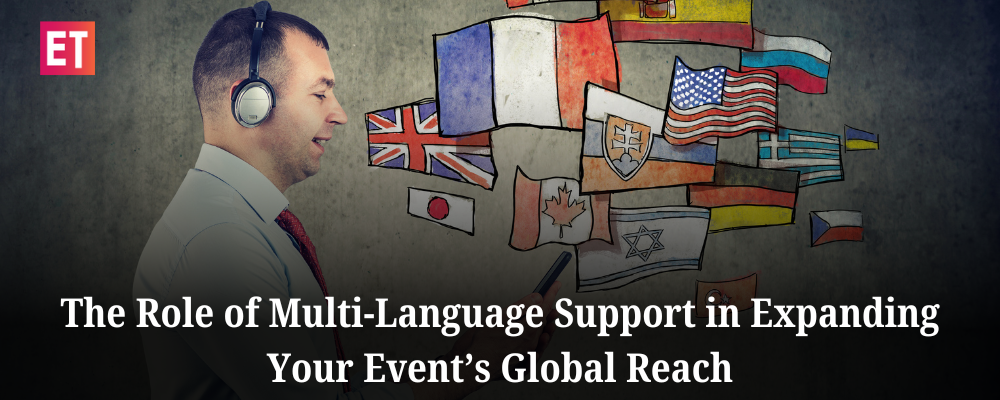The Role of Multi-Language Support in Expanding Your Event’s Global Reach

We live in a borderless world today, where events are no longer confined to a single location. With so many advancements in technology, a lot has changed, and events now have a global audience. However, reaching an international audience is very hard. It required more than just broadcasting the event online. You need to have a very thoughtful approach. You need to keep in mind factors like inclusivity and accessibility. This is where multi-language support comes in. You can enhance your event’s global reach and can break barriers, alongside fostering a sense of belonging among the audience.
In this blog, learn all about how multi-language support can help with your event’s reach.
What is Multi-Language Support?
The ability of an event platform or system to function flawlessly in numerous languages, accommodating participants from various linguistic backgrounds, is known as multi-language support. Providing multilingual alternatives for everything from event websites to ticketing systems and live streaming platforms guarantees that non-native speakers may participate completely in the event.
Including multilingual event platforms is a strategic choice that shows respect for cultural diversity, not just a technical one. It is an effective technique to make foreign guests feel appreciated and welcomed, which greatly increases the possibility that they will attend and enjoy the event.
Why Is Multi Language Support Important?
The demand for multi-language support is now rising more the ever. Customers want the best experience and they can only get this when they understand things in their own language. This instantly forms a personal connection that lasts long. Customer service can only be great when there is multi language support. This also helps solve customers’ problems in the best way possible.
It is all about enhancing the experience of attendees. When the event is localized, attendees can have a very seamless experience. For example, consumers can browse pricing, seating arrangements, and booking options in their native language on multilingual ticketing services. This clears up any confusion, lowers the number of people who leave during the ticketing process, and boosts attendee satisfaction.
Challenges of Multilingual Customer Support
Naturally, providing multilingual customer service has its own set of difficulties. Hastily implementing generic solutions can cause more harm than benefit.
Because of this, businesses who wish to provide multilingual customer service must concentrate on at least two aspects when doing so: making certain that brand recognition is consistent across all languages, and establishing uniformity in service quality across languages and teams.
The Role of Event Localization Strategies
Event localization strategies are more than just translating content. They involve ensuring that the events suit cultural preferences and that they meet expectations of different regions. Say, you can include customized marketing campaigns like region specific imagery and idioms so that they can resonate with local audiences in the best way. apart from that, you can also include localized payment methods like different payment systems in line with what the target audience would ideally be more comfortable with. Apart from that, the content should also be tailored in a way that it aligns with the cultural norms and interests of others. This ensures that the event is engaging and relevant.
The Importance of Multi-Lingual Ticketing
A very massive aspect of global events is the ticketing process. Ideally, this should be simplified as much as possible to help attendees in all ways. When this becomes multi-lingual, it makes things a whole lot easier. Here is how this can help make the event a success:
- It allows for very easy access. Attendees can view the details of tickets and can also understand payment options in the best way. FAQs in the preferred language also simplify the booking process.
- An easy ticketing experience also helps develop trust over time.
- With multi-lingual ticketing, you can show how focused you are on inclusivity, which reflects positively on the brand image
For large scale events in specific, it is even more important to make the ticketing process easier.
Implementing Multi-Language Support
Here is how you can offer multi-lingual support in the best way:
- Select the Appropriate Platform: Make use of an event platform that supports several languages and has integrated translation capabilities.
- Professional Translations: To ensure accuracy and professionalism in all content, make an investment in top-notch translations.
- Localize Beyond Language: Adapt other elements of the event, like marketing strategies and payment options, to suit local tastes.
- Test Functionality: To prevent mistakes or misunderstandings during the event, make sure that all translations and locally relevant components are carefully tested.
- Support: To help participants with questions or problems, provide customer service in a variety of languages.
Incorporating multi-language support can help you expand global reach in the best way.


